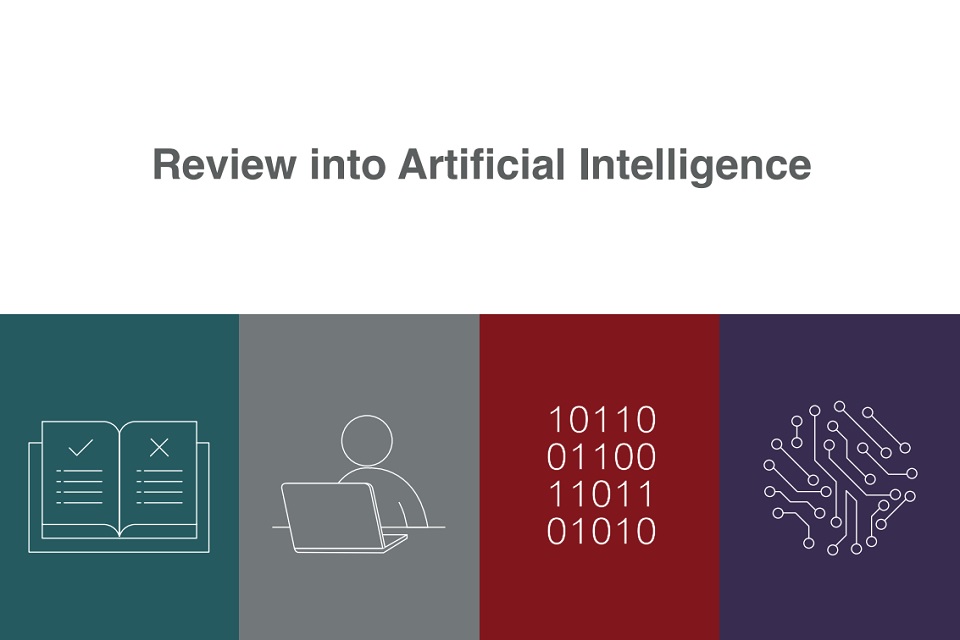
Today, the Committee is releasing our report on Artificial Intelligence and Public Standards.
Over the past year, we have spoken to tech specialists, policy professionals, academics, legal experts and private companies to examine how the Seven Principles can be upheld as artificial intelligence is deployed across the public sector.
AI is game-changing technology. Developments in machine learning promise to revolutionise medicine, policing, education and social care. But any change in how public services are delivered must not undermine the values that underpin public service, and it’s clear that the public need reassurance about the way AI will be used.
So our review sought to find out how AI will affect public standards, and what reforms in AI policy, governance and regulation are needed to ensure standards will be upheld as our public services try to make the most of this 21st century technology.

The Seven Principles of Public Life
Of the Seven Principles of Public Life, we found that AI poses a particular challenge for three: openness, accountability, and objectivity.
On openness, government is failing. Public sector organisations are not sufficiently transparent about their use of AI and it is extremely difficult to find out where and how new technology is being used. We add our voice to that of the Law Society and the Bureau of Investigative Journalism in calling for better disclosure of algorithmic systems.
Explaining AI decisions will be key to accountability and many have warned of the prevalence of ‘Black Box’ AI. However our review found that more explainable AI is a realistic and attainable goal for the public sector - so long as government and private companies prioritise public standards when designing and building AI systems.
Data bias risks automating discrimination and violating the principle of objectivity, and here our Committee found cause for serious concern. Technical ‘solutions’ to bias do not yet exist, and we do not know how our anti-discrimination laws will apply to data-driven systems. Public sector organisations must be aware of how their software solutions affect minority communities - and they should act to minimise any discriminatory impact.

AI Policy and Regulation
All in all, the UK’s regulatory and governance framework for AI in the public sector remains a work in progress and deficiencies are notable. The Committee makes a number of recommendations to push government and regulators in the right direction. It is worth noting, however, that much of this work is already underway. We endorse the government’s current plan for the new Centre for Data Ethics and Innovation, and recent public sector AI guidance is a step in the right direction.
We do not call for a change in the law. In our view the GDPR - supported by excellent recent guidance from the ICO - provides sufficient safeguards on explanations and upholding the role of public officials in a decision-making process. The Equality Act, including the Public Sector Equality Duty, provides a strong legal foundation to prevent discrimination via algorithm.
However our evidence revealed a worrying ambiguity on how the Equality Act should apply to AI systems in the public sector. We have therefore called for the Equality and Human Rights Commission, in partnership with the CDEI and the Turing Institute, to issue guidance on the Equality Act and AI.

AI Governance
We also found that AI will not require any major change in the models of governance of public sector organisations. Public standards issues should be analysed within the context of general risk management - and any risks to public standards mitigated.
The governance measures we recommend should not come as a surprise to those working in this sector - they include maximising workforce diversity, setting clear responsibility for officials involved in an AI decision-making process, and establishing oversight of a whole AI process. Our approach and recommendations concur with the government’s Guide to Using AI in the Public Sector.

Unleashing the potential of AI
The pursuit of ethical AI should unite the technology’s evangelists and its critics. The public will only trust government to introduce new technology if it is clear that public standards will be upheld as it is doing so. And we need to move fast if we want to make sure that is the case.
Meeting AI’s ethical challenges head-on should accelerate, rather than delay, AI adoption - and ensure the benefits of the data revolution are shared by all.
We hope this report will advance that goal. You can read ‘Artificial Intelligence and Public Standards - A Report by the Committee on Standards in Public Life’ in full here.
